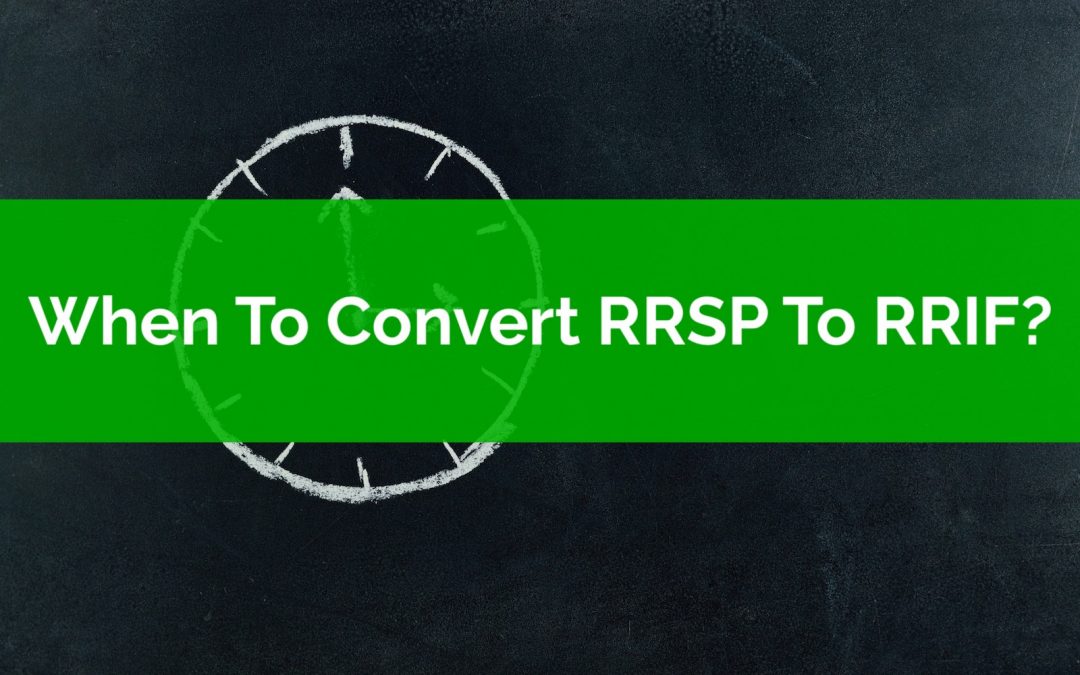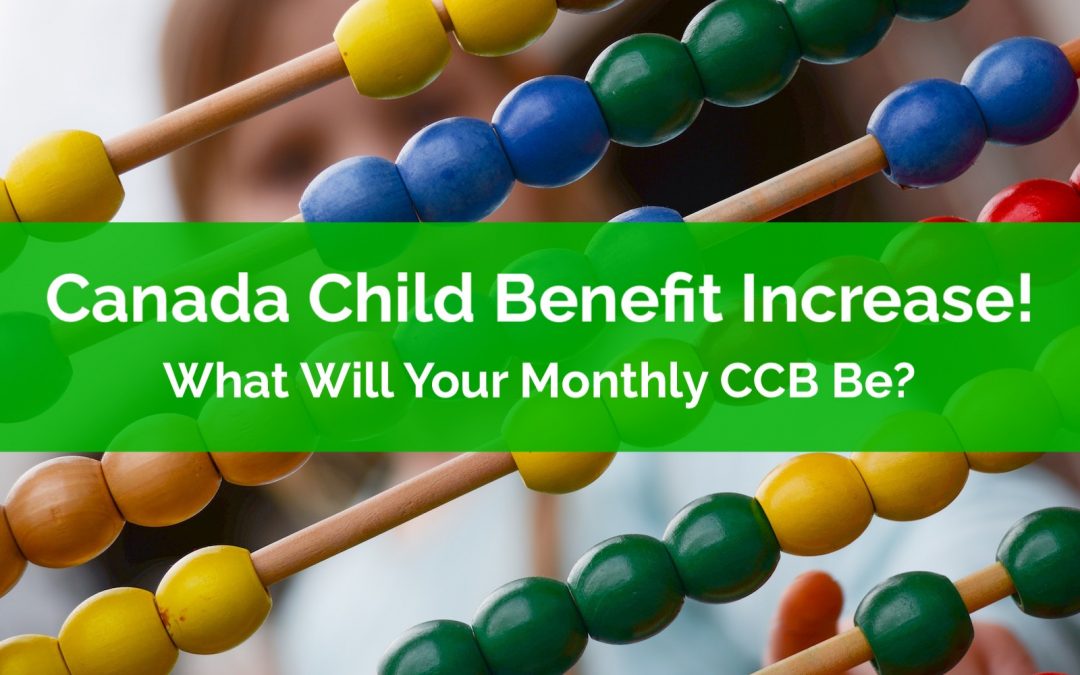“Welcome to the PlanEasy blog! We make personal finance easy.
Thanks for visiting.”
– Owen

When To Convert RRSP To RRIF?
When to convert RRSP to RRIF? What is the right time to convert? What are the advantages of converting?
Converting an RRSP to a RRIF is mandatory by the end of the year you turn age 71. This triggers mandatory minimum withdrawals the following year and each year after that. The minimum withdrawal is based on the ending balance the previous year and the account holder’s age.
There is a common misconception that you should wait until the last possible moment to convert an RRSP to a RRIF. Maybe this is because it’s a “forced” conversion? Something that’s forced couldn’t be good right? Perhaps it’s because RRSPs grow tax free? Why not delay withdrawals as long as possible, why voluntarily make withdrawals by converting to a RRIF early?
Despite the misconceptions above, in many cases, converting an RRSP to a RRIF should be done much earlier than age 71.
There are many reasons for a retiree to convert an RRSP to a RRIF well before the mandatory age of 71. In this post we’ll highlight some of the considerations when deciding when to convert RRSP to RRIF.

Canada Child Benefit Increase! What Will Your Monthly CCB Be?
The Canada Child Benefit is one of the most generous government benefits in Canada and it just increased! Unlike many government benefits, the Canada Child Benefit is available to low, moderate, and also some high income families.
The amount you receive from the Canada Child Benefit (CCB) depends on a few factors, one is the taxable net income for the family (line 23600 on your tax return), another is the number of children in the family, and the final factor is the age of each child.
The Canada Child Benefit is an “income tested” government benefit. The higher your taxable net income is, the lower your Canada Child Benefit will be. For some high income families, at a certain level of income the Canada Child Benefit will be reduced to $0. Anyone with income above that income level will not receive any benefit. The tricky thing is that this income level is different depending on the number of children and their ages.
The Canada Child Benefit also changes every year. New benefits start in July and are based on prior years tax return (the first payment of the updated benefit is July 20th).
The Canada Child Benefit also increases with inflation. The new 2023 Canada Child Benefit has increased by 6.3% versus 2022.
So how much Canada Child Benefit can you expect in July? We’ve got a table below that shows the Canada Child Benefit based on family taxable net income (line 23600) in $10,000 increments, so you can figure out generally how much you can expect in July.

9 Important Considerations When Selling Your Home In Retirement
The largest financial transaction you will ever make is selling your home in retirement. Selling your home in retirement comes with a number of important considerations.
In this blog post we’re going to touch on 9 important things to consider when selling your home in retirement.
Selling a home in retirement can be a core part of many retirement plans. A sale usually takes one of three forms…
– Sell and rent
– Sell and downsize
– Sell when entering long-term care
Often the plan is to hold the home throughout retirement, but it can still be used as a “fall back” asset if necessary. Even if there was never a plan to sell the home, it can still be used to help fund long-term care costs in late retirement.
Each situation above has its unique circumstances but, in all cases, there is a major transaction taking place. So, before you put up the ‘for sale’ sign in retirement there are a few important considerations to highlight.

Owen Winkelmolen
Advice-only financial planner, CFP, and founder of PlanEasy.ca
“Welcome to the PlanEasy blog! We make personal finance easy.
Thanks for visiting.”
– Owen
New blog posts weekly!
Tax planning, benefit optimization, budgeting, family planning, retirement planning and more...

When To Convert RRSP To RRIF?
When to convert RRSP to RRIF? What is the right time to convert? What are the advantages of converting?
Converting an RRSP to a RRIF is mandatory by the end of the year you turn age 71. This triggers mandatory minimum withdrawals the following year and each year after that. The minimum withdrawal is based on the ending balance the previous year and the account holder’s age.
There is a common misconception that you should wait until the last possible moment to convert an RRSP to a RRIF. Maybe this is because it’s a “forced” conversion? Something that’s forced couldn’t be good right? Perhaps it’s because RRSPs grow tax free? Why not delay withdrawals as long as possible, why voluntarily make withdrawals by converting to a RRIF early?
Despite the misconceptions above, in many cases, converting an RRSP to a RRIF should be done much earlier than age 71.
There are many reasons for a retiree to convert an RRSP to a RRIF well before the mandatory age of 71. In this post we’ll highlight some of the considerations when deciding when to convert RRSP to RRIF.

Canada Child Benefit Increase! What Will Your Monthly CCB Be?
The Canada Child Benefit is one of the most generous government benefits in Canada and it just increased! Unlike many government benefits, the Canada Child Benefit is available to low, moderate, and also some high income families.
The amount you receive from the Canada Child Benefit (CCB) depends on a few factors, one is the taxable net income for the family (line 23600 on your tax return), another is the number of children in the family, and the final factor is the age of each child.
The Canada Child Benefit is an “income tested” government benefit. The higher your taxable net income is, the lower your Canada Child Benefit will be. For some high income families, at a certain level of income the Canada Child Benefit will be reduced to $0. Anyone with income above that income level will not receive any benefit. The tricky thing is that this income level is different depending on the number of children and their ages.
The Canada Child Benefit also changes every year. New benefits start in July and are based on prior years tax return (the first payment of the updated benefit is July 20th).
The Canada Child Benefit also increases with inflation. The new 2023 Canada Child Benefit has increased by 6.3% versus 2022.
So how much Canada Child Benefit can you expect in July? We’ve got a table below that shows the Canada Child Benefit based on family taxable net income (line 23600) in $10,000 increments, so you can figure out generally how much you can expect in July.

9 Important Considerations When Selling Your Home In Retirement
The largest financial transaction you will ever make is selling your home in retirement. Selling your home in retirement comes with a number of important considerations.
In this blog post we’re going to touch on 9 important things to consider when selling your home in retirement.
Selling a home in retirement can be a core part of many retirement plans. A sale usually takes one of three forms…
– Sell and rent
– Sell and downsize
– Sell when entering long-term care
Often the plan is to hold the home throughout retirement, but it can still be used as a “fall back” asset if necessary. Even if there was never a plan to sell the home, it can still be used to help fund long-term care costs in late retirement.
Each situation above has its unique circumstances but, in all cases, there is a major transaction taking place. So, before you put up the ‘for sale’ sign in retirement there are a few important considerations to highlight.
Join over 250,000 people reading PlanEasy.ca each year. New blog posts weekly!
Tax planning, benefit optimization, budgeting, family planning, retirement planning and more...
Join over 250,000 people reading PlanEasy.ca each year. New blog posts weekly!
Tax planning, benefit optimization, budgeting, family planning, retirement planning and more...
